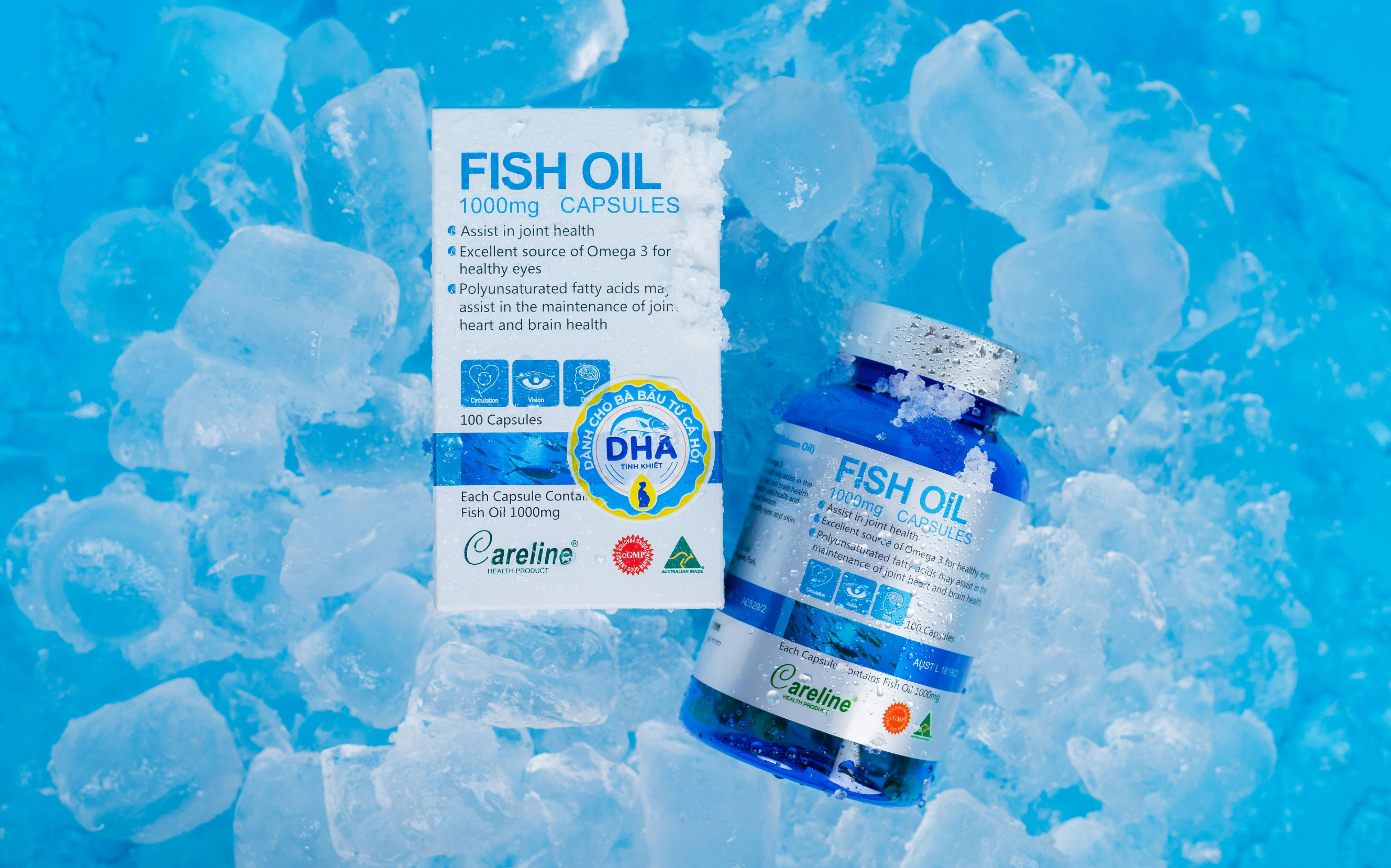Bare Biology Omega-3 Fish Oil Daily Capsules | Inessa Advanced Omega 3 Fish Oil | ARTAH Essential Omegas | Wild Nutrition Pregnancy + New Mother Omega 3 | Feel Omega 3
Beyond the familiar advocacy for vitamin D and the burgeoning emphasis on gut microbiota, fish oil is increasingly recognized as a pivotal supplement for comprehensive well-being. The polyunsaturated fatty acids inherent in fish oils are paramount for sustaining optimal ocular, cerebral, and cardiac function.
Notwithstanding its significance, the human organism possesses a limited capacity to biosynthesize the requisite quantities of omega-3 fatty acids. Consequently, exogenous acquisition through dietary sources or supplementation becomes indispensable. While achieving adequate intake solely through dietary modification is plausible, the exigencies of contemporary lifestyles often render this approach challenging for consistent adherence.
It is pertinent to elucidate that while “fish oil” serves as a common descriptor, the preponderance of commercially available formulations primarily comprise omega-3 fatty acids. Conceptualize fish oil as the origin, and omega-3 as the substantive nutrient. Furthermore, the majority of premium supplements specifically deliver eicosapentaenoic acid (EPA) and docosahexaenoic acid (DHA), the principal omega-3 congeners. Alpha-linolenic acid (ALA), the third primary omega-3 fatty acid, is predominantly sourced from botanical origins.
Esteemed nutritionist GQ Jordan elucidates, “When we deliberate upon fish oil supplementation, our focus invariably converges upon omega-3 supplementation, particularly the efficacious EPA and DHA. These constitute the principal bioactive constituents within fish oil, underpinning its purported health benefits. While fish oils may encompass trace amounts of other lipids, the preponderance of scientific inquiry substantiates the efficacy of omega-3s. Consequently, the term ‘fish oil’ on product labeling functions as a concise appellation for omega-3 fatty acids.”
For individuals desirous of exploring the salutary effects of fish oil yet uncertain of their point of commencement, we have curated a refined selection of exemplary supplements. Peruse the ensuing compendium to discover optimal fish oil formulations tailored to diverse needs.
A Curated Compendium: Premier Fish Oil Supplements for Enhanced Vitality
- Optimal for Holistic Well-being: Bare Biology Omega-3 Fish Oil Daily Capsules
- Superior for Muscular Recuperation: Inessa Advanced Omega 3 Fish Oil
- Excellent for Immune System Fortification: ARTAH Essential Omegas
- Ideal for Prenatal and Postnatal Support: Wild Nutrition Pregnancy + New Mother Omega 3
- Exemplary for Vegetarian and Vegan Individuals: Feel Omega 3

Optimal for Holistic Well-being: Bare Biology Omega-3 Fish Oil Daily Capsules
- Rationale for Endorsement: Sourced from certified sustainably harvested sardines, anchovies, and mackerel, and encased in fish gelatin, this high-potency formulation represents a judicious choice for those seeking to accrue the cardiovascular, neurological, and articular benefits of omega-3s. Moreover, its omega-3 content may contribute to the maintenance of optimal ocular health, potentially mitigating age-related macular degeneration and dry eye syndrome.
- Constituent Profile: 860mg EPA, 440mg DHA
- Recommended Dosage: 60 capsules, two administered daily
Superior for Enhanced Bioavailability: Nordic Naturals Ultimate Omega
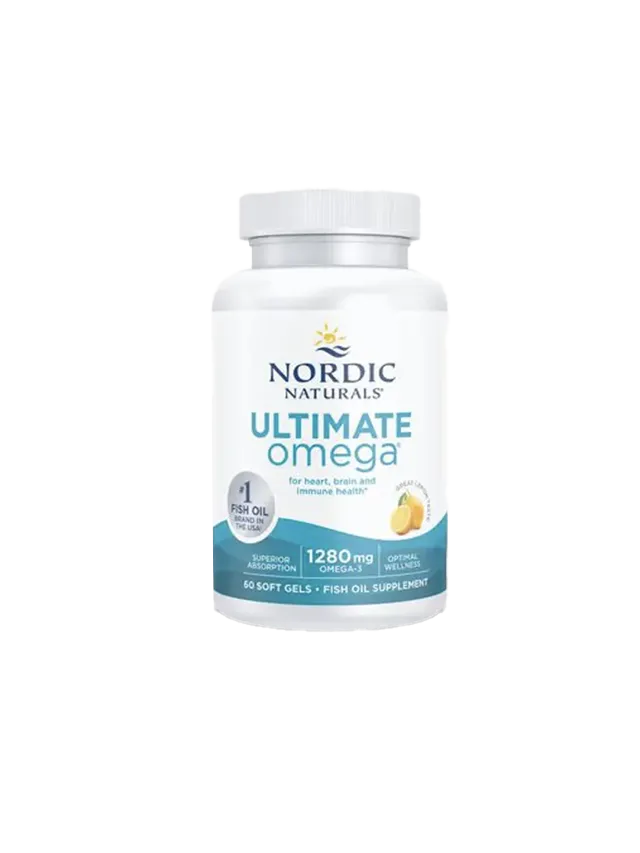
- Rationale for Endorsement: Delivering a substantial bolus of omega-3s per serving, this daily supplement utilizes oil derived from wild-caught anchovies and sardines in their re-esterified triglyceride form. This sophisticated processing methodology enhances the body’s capacity for omega-3 absorption and assimilation, rendering it particularly suitable for individuals with gastrointestinal sensitivities.
- Constituent Profile: 650mg EPA, 450mg DHA
- Recommended Dosage: 60 soft gels, two administered daily
Excellent for Cardiovascular Health: Thorne Omega-3 with CoQ10
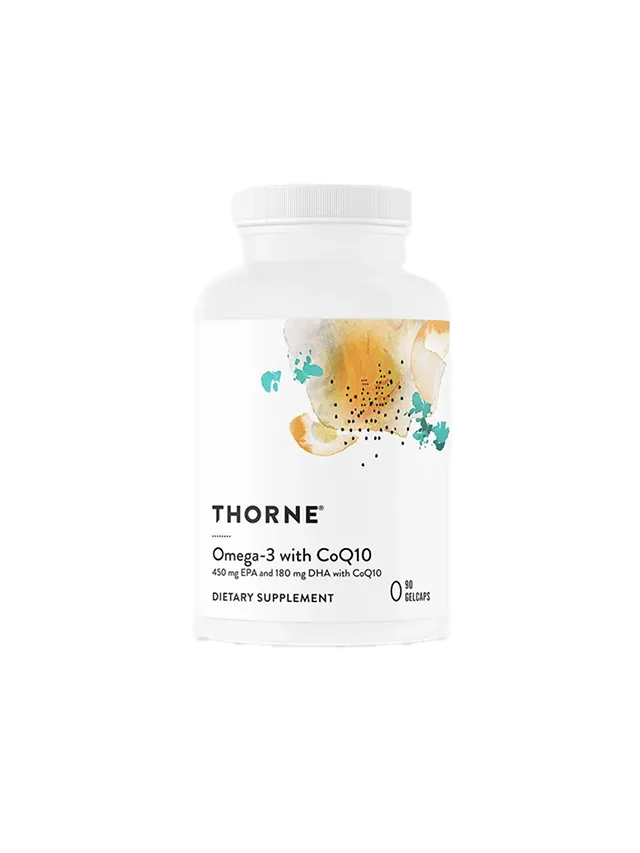
- Rationale for Endorsement: This synergistic formulation combines the anti-inflammatory properties of EPA and DHA from cold-water fish with a significant inclusion of Coenzyme Q10 (CoQ10), a potent antioxidant instrumental in cellular energy production. This amalgamation not only potentiates omega-3 absorption but also confers targeted support for cardiovascular integrity.
- Constituent Profile: 450 mg EPA, 180mg DHA, CoQ10
- Recommended Dosage: 90 gel caps, one administered daily
Superior for Muscular Recuperation: Inessa Advanced Omega 3 Fish Oil
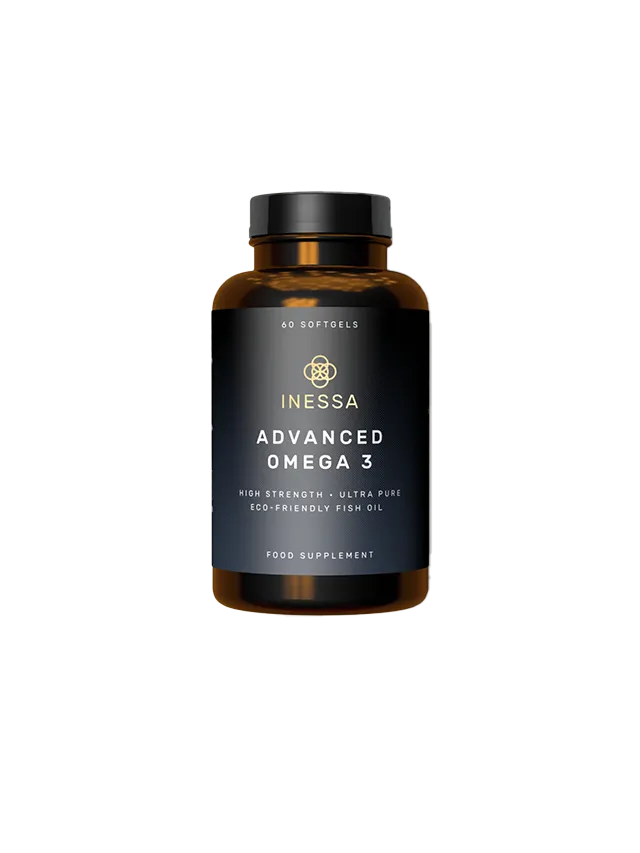
- Rationale for Endorsement: Beyond its pleiotropic health benefits, omega-3 plays a pivotal role in optimizing physical regimens. It aids in the attenuation of post-exertional muscle soreness, the mitigation of inflammation and muscular microtrauma, while concurrently enhancing muscle function and accelerating the recovery process.
- Constituent Profile: 480mg EPA, 360mg DHA
- Recommended Dosage: 60 capsules, one to three administered daily
Excellent for Dermal Integrity: Ancient + Brave True Omegas+60
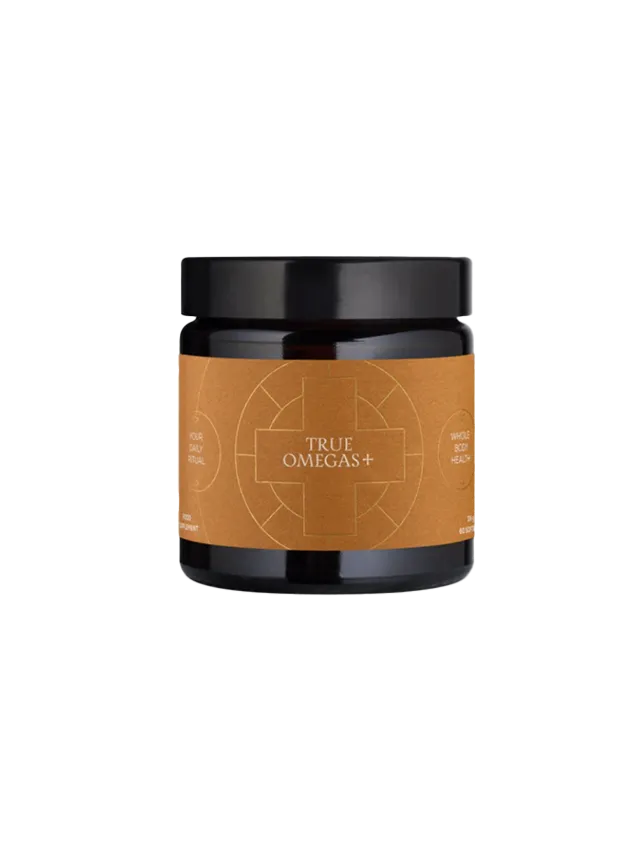
- Rationale for Endorsement: While omega-3 is lauded for its effects on ocular, cardiac, and neurological health, omega-7 also exerts significant influence. This innovative supplement combines algae-derived omega-3 with omega-7 sourced from sea buckthorn. This potent dyad not only supports cutaneous health and promotes lipid metabolism but also contributes to the reduction of inflammation, the balancing of cholesterol levels, and the improvement of digestive function.
- Constituent Profile: 150mg EPA, 300mg DHA, 50mg omega-7
- Recommended Dosage: 60 soft gels, two administered daily
Excellent for Immune System Fortification: ARTAH Essential Omegas
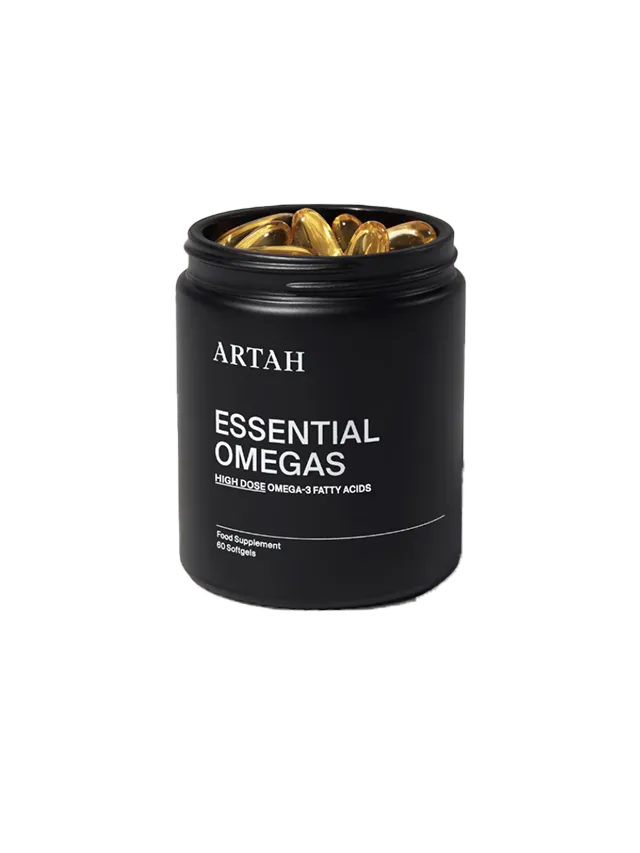
- Rationale for Endorsement: Derived from sustainably harvested wild anchovies, this constitutes an exemplary fish oil selection for individuals seeking to bolster their immune defenses through supplementation. In addition to its benefits for neurological and articular health, omega-3 is fundamental for supporting robust immunity and maintaining healthy cellular membrane structure – a cornerstone of overall well-being.
- Constituent Profile: 1000mg EPA, 500mg DHA
- Recommended Dosage: 60 soft gels, two administered daily
Superior for Attenuating Cholesterol Levels: KIKI Health Krill Oil Softgels
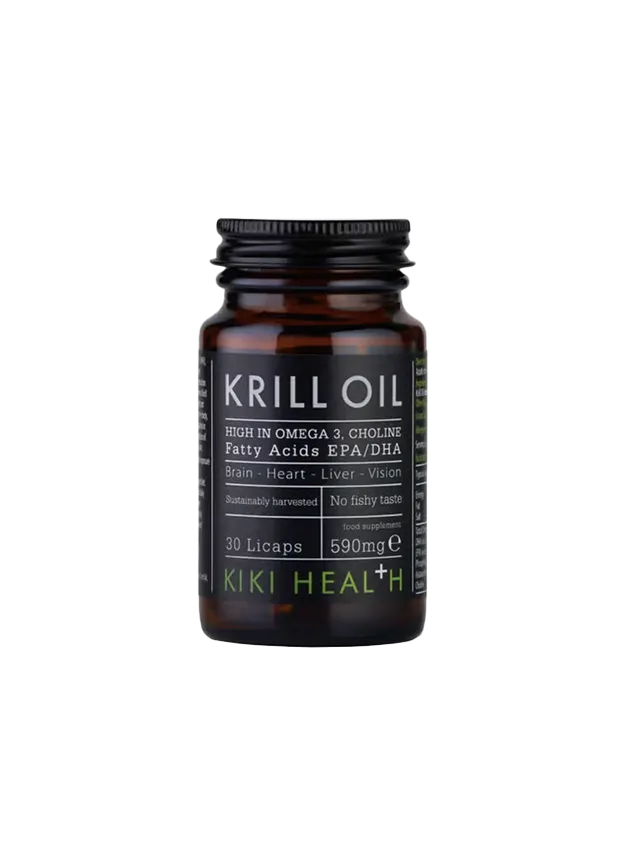
- Rationale for Endorsement: Manufactured via a sophisticated multi-stage oil-extraction process, this supplement provides omega-3s derived from krill, a small crustacean regarded as a more ecologically sound alternative to traditional fish sources. Krill also naturally contains astaxanthin, a puissant antioxidant that safeguards against cellular oxidative damage. Notably, clinical investigations suggest that krill oil may exhibit superior efficacy compared to fish oil in reducing blood glucose, triglycerides, and low-density lipoprotein (LDL) cholesterol.
- Constituent Profile: 89mg EPA, 41mg DHA
- Recommended Dosage: 30 capsules, one to two administered daily
Excellent for Hormonal Equilibrium: Purolabs High Strength Omega-3
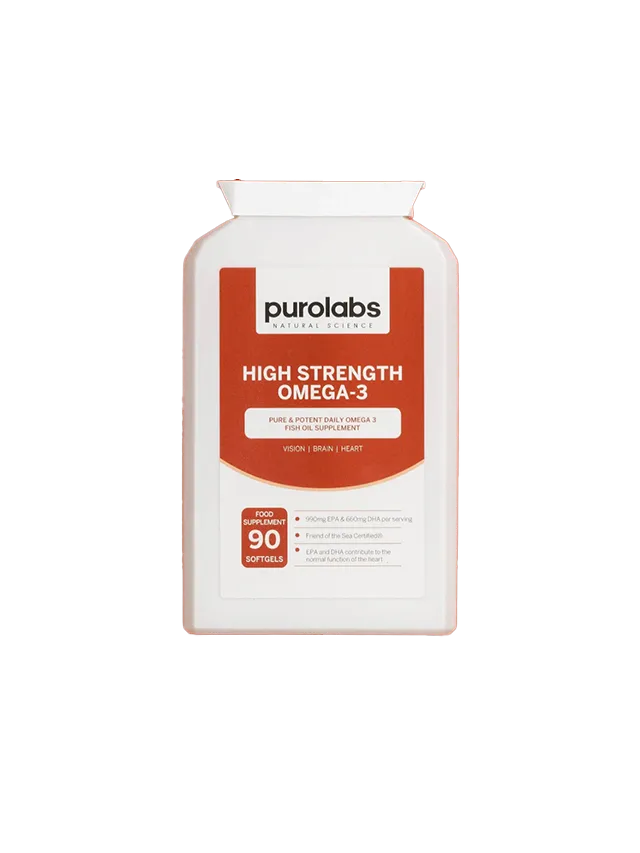
- Rationale for Endorsement: Exhibiting a higher omega-3 concentration than an entire tin of sardines, this daily supplement utilizes oil sustainably sourced from deep-water, wild-caught South Pacific anchovies – a healthier piscine source with a superior natural fatty acid profile. Rigorously tested for microbial contaminants, heavy metals, herbicides, and pesticides, it offers comprehensive support for mood regulation and hormonal balance, as well as neurological and cardiovascular health.
- Constituent Profile: 660mg EPA, 440mg DHA
- Recommended Dosage: 90 capsules, two administered daily
Ideal for Prenatal and Postnatal Support: Wild Nutrition Pregnancy + New Mother Omega 3
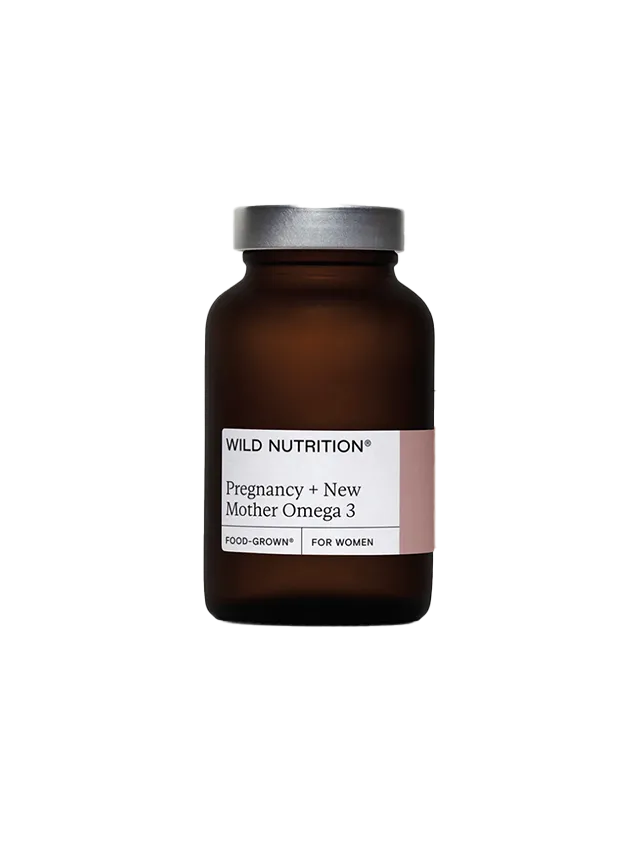
- Rationale for Endorsement: Omega-3 is indispensable for supporting optimal fetal neurodevelopment and ocular maturation, rendering a high-quality fish oil supplement an invaluable adjunct to prenatal care. Emerging evidence also suggests a potential role in mitigating the risk of preterm parturition. Furthermore, omega-3s confer significant benefits for maternal well-being, with studies indicating their capacity to modulate inflammatory processes often associated with postpartum depression.
- Constituent Profile: 250mg EPA, 00mg DHA
- Recommended Dosage: 60 capsules, two administered daily
Frequently Inquired Matters
Why is fish oil supplementation deemed important?
“Fish oil supplements are replete with omega-3 fatty acids, notably EPA and DHA, which fulfill critical roles across a spectrum of physiological functions, from hormonal regulation to the maintenance of cardiovascular, neurological, and dermatological health,” elucidates Jordan. “A significant proportion of the population fails to attain sufficient quantities through dietary means alone, rendering supplementation a crucial strategy to address this nutritional lacuna, particularly for individuals who do not regularly consume oily fish. Moreover, omega-3s exhibit significant anti-inflammatory properties, a salient consideration in a milieu characterized by escalating levels of stress, processed food consumption, and hormonal imbalances.”
What constitutes an appropriate daily intake of fish oil for the average individual?
“A universally applicable dosage does not exist; however, general recommendations typically range from 250 to 500mg of combined EPA and DHA daily for maintenance purposes,” advises Jordan. “For specific health objectives, such as supporting fertility, mood regulation, or inflammation attenuation, higher dosages may be warranted, ideally under the guidance of a qualified healthcare professional.”
Is it feasible to obtain adequate omega-3s solely through dietary means?
“While theoretically possible, achieving sufficient intake through diet alone often presents practical challenges,” cautions Jordan. “Consistent consumption of two to three servings of oily fish, such as salmon, mackerel, or sardines, per week would be necessary to meet these omega-3 targets. This can prove arduous for individuals with dietary restrictions, aversions to fish, or demanding schedules. Furthermore, the omega-3 content in both farmed and wild fish has exhibited a downward trend over time due to alterations in their diets and environmental factors, implying that actual intake may be lower than perceived. This underscores the value of supplementation in providing a more consistent and reliable source.”
Which individuals stand to benefit most from fish oil supplementation?
“In truth, a substantial proportion of the population may experience positive outcomes,” states Jordan. “However, individuals grappling with inflammatory conditions, hormonal dysregulation, depressed mood, xeroderma, dysmenorrhea, or those contemplating pregnancy may derive particular benefit. Symptoms such as cognitive impairment, dull complexion, persistent fatigue, or a general sense of malaise may also indicate suboptimal omega-3 levels. Omega-3s are particularly efficacious during perimenopause, postpartum recovery, and in the management of conditions such as polycystic ovary syndrome (PCOS) or endometriosis.” Emerging research suggests that for individuals in perimenopause or beyond, fractionating the daily dose throughout the day may help to mitigate age-related inflammation.
What criteria should guide the selection of a high-quality fish oil supplement?
“Prioritize supplements that explicitly quantify their EPA and DHA content, as some less expensive options may only contain one,” advises Jordan. “Opt for formulations derived from smaller pelagic fish such as sardines or anchovies, which occupy a lower trophic level and exhibit a reduced propensity for heavy metal bioaccumulation compared to larger species like tuna. Packaging is also a salient consideration; select dark glass bottles over transparent plastic containers, as omega-3s are susceptible to photodegradation. Certifications such as IFOS or MSC serve as indicators of purity and sustainable sourcing, respectively. Consultation with a knowledgeable healthcare practitioner can also provide valuable guidance. In the realm of fish oil, quality demonstrably influences efficacy.”
Which factors should be avoided when selecting a fish oil supplement?
“Avoid supplements that lack transparent disclosure of their EPA and DHA content,” cautions Jordan. “‘1000mg fish oil’ provides insufficient information and can be misleading. Exercise caution with budget-oriented brands exhibiting nebulous sourcing practices or a lack of transparency. Be mindful of any persistent fishy aftertaste or gastroesophageal reflux following ingestion, as these may signify oxidation or inferior oil quality. A high-caliber supplement is less likely to induce such adverse effects and should possess a fresh, clean flavor profile and be readily digestible.”
What are some exemplary dietary sources of omega-3 fatty acids?
“Oily fish such as salmon, mackerel, anchovies, sardines, and herring constitute excellent natural sources of omega-3s,” notes Jordan. “Plant-based options like flaxseeds, chia seeds, and walnuts provide alpha-linolenic acid (ALA), a precursor to EPA and DHA; however, the efficiency of endogenous conversion is limited. Consequently, for vegetarian and vegan individuals, a high-quality algae-based omega-3 supplement represents a prudent dietary adjunct.”
Consider the incorporation of a premium fish oil supplement into your daily regimen – a seemingly modest intervention with the potential to yield profound enhancements in overall well-being. In the pursuit of a life characterized by robust vitality and refined wellness, this constitutes an essential element worthy of meticulous consideration.
In summation, the incorporation of a high-quality fish oil supplement represents a judicious and efficacious strategy for bolstering overall health and addressing specific wellness objectives. By diligently selecting a reputable formulation that aligns with individual needs, one can readily harness the myriad benefits of these essential omega-3 fatty acids, thereby investing in a future characterized by enhanced vitality and well-being.



